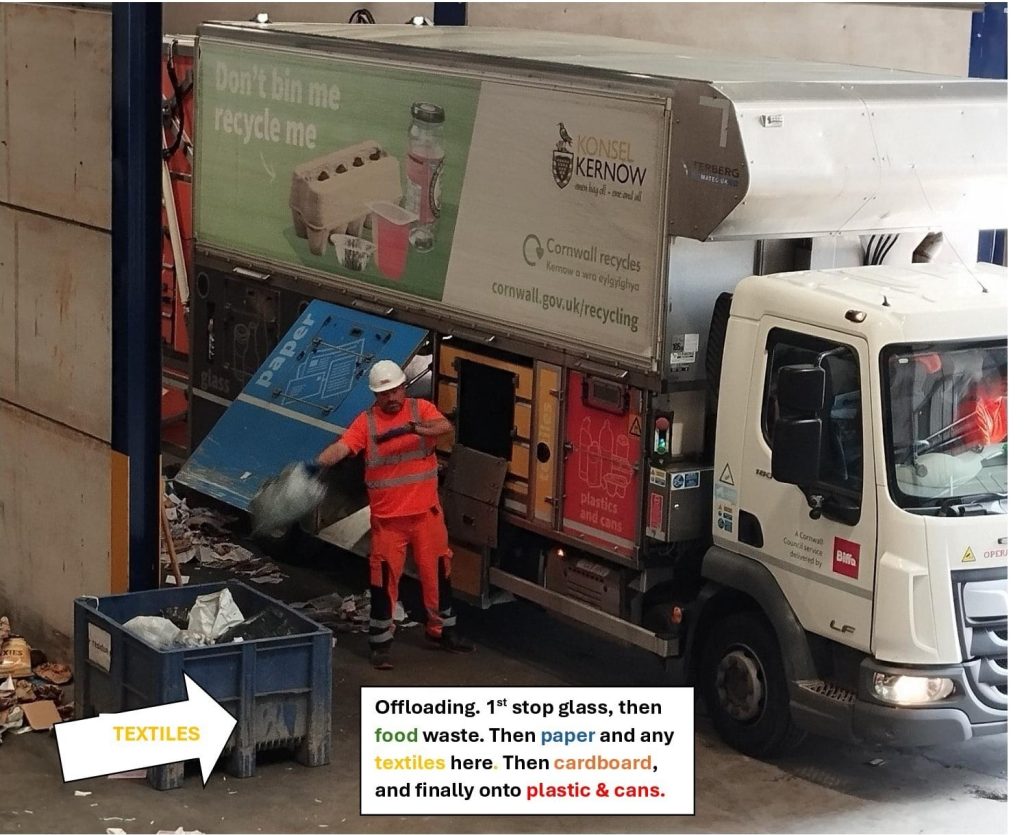
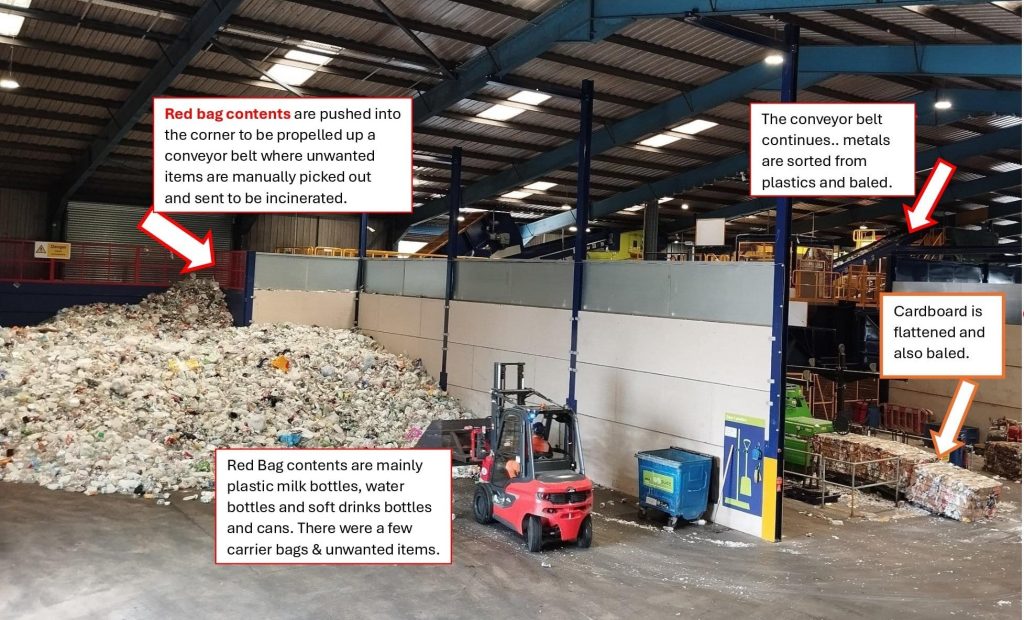
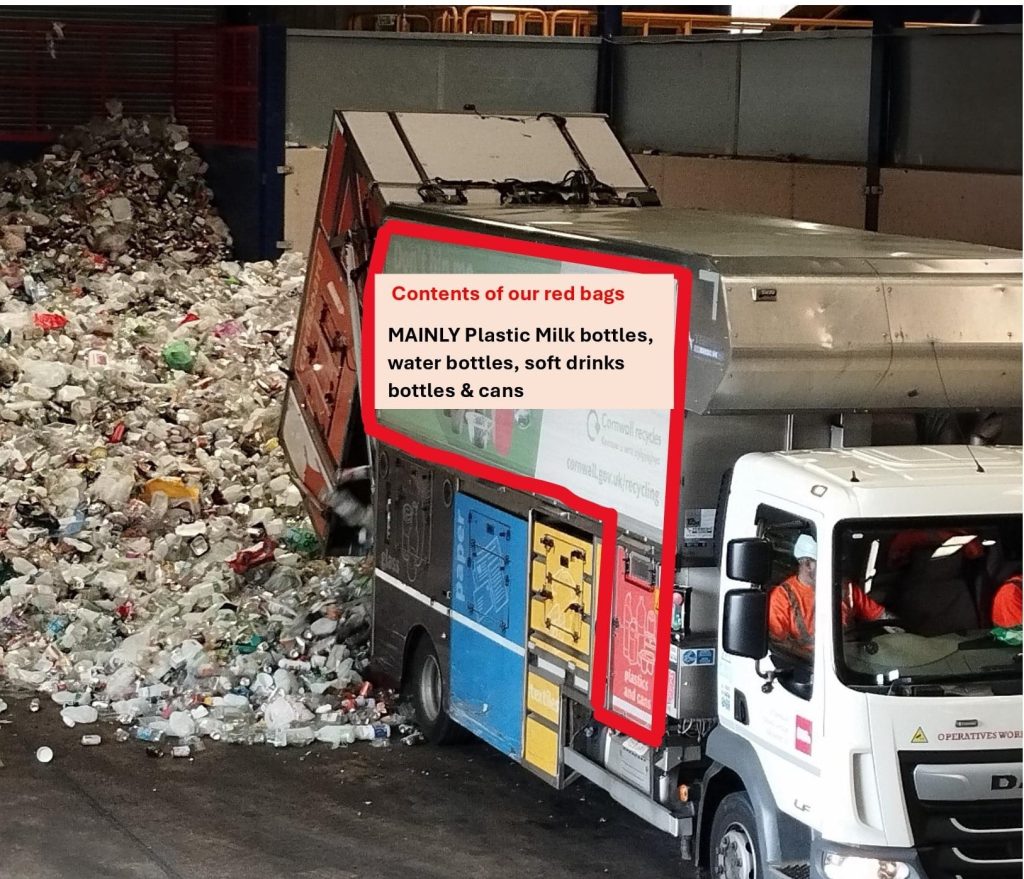
Once cardboard has been offloaded
the plastics container can be opened
and offloaded.
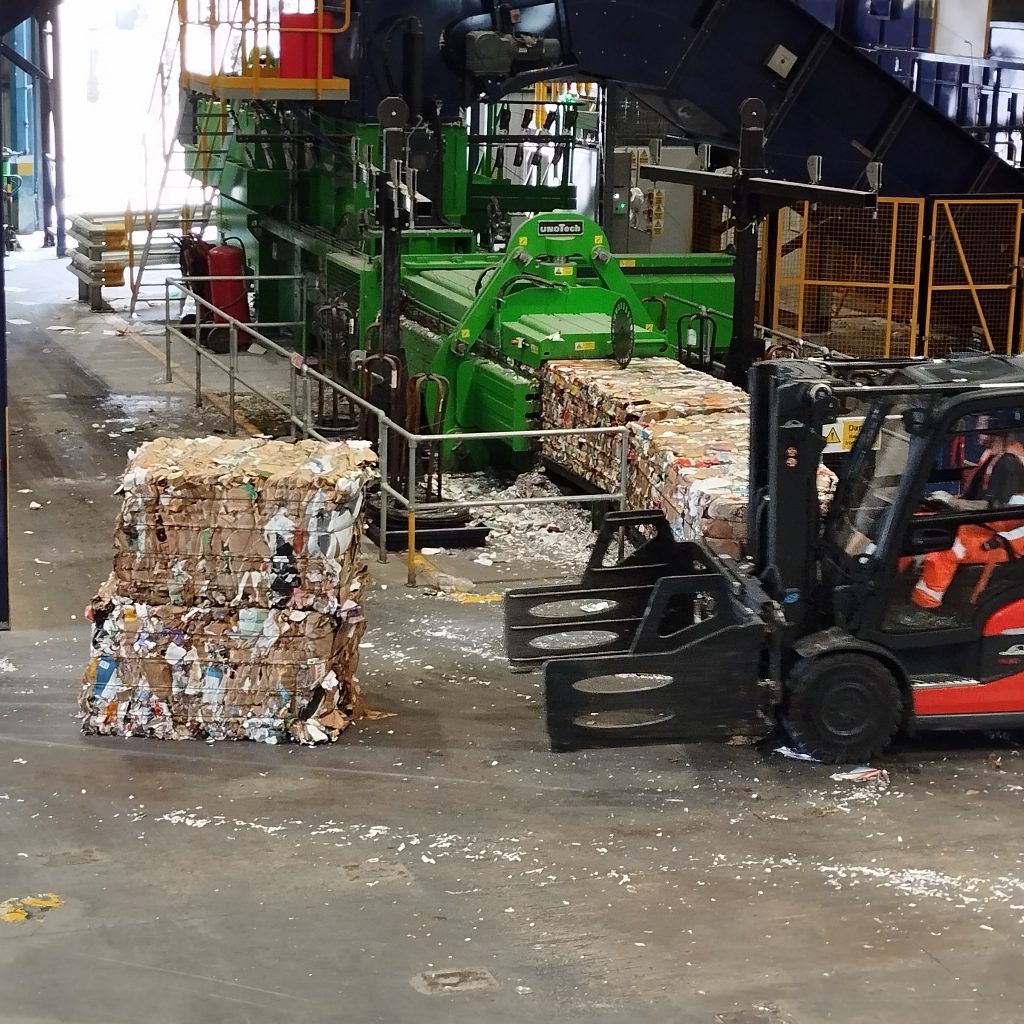
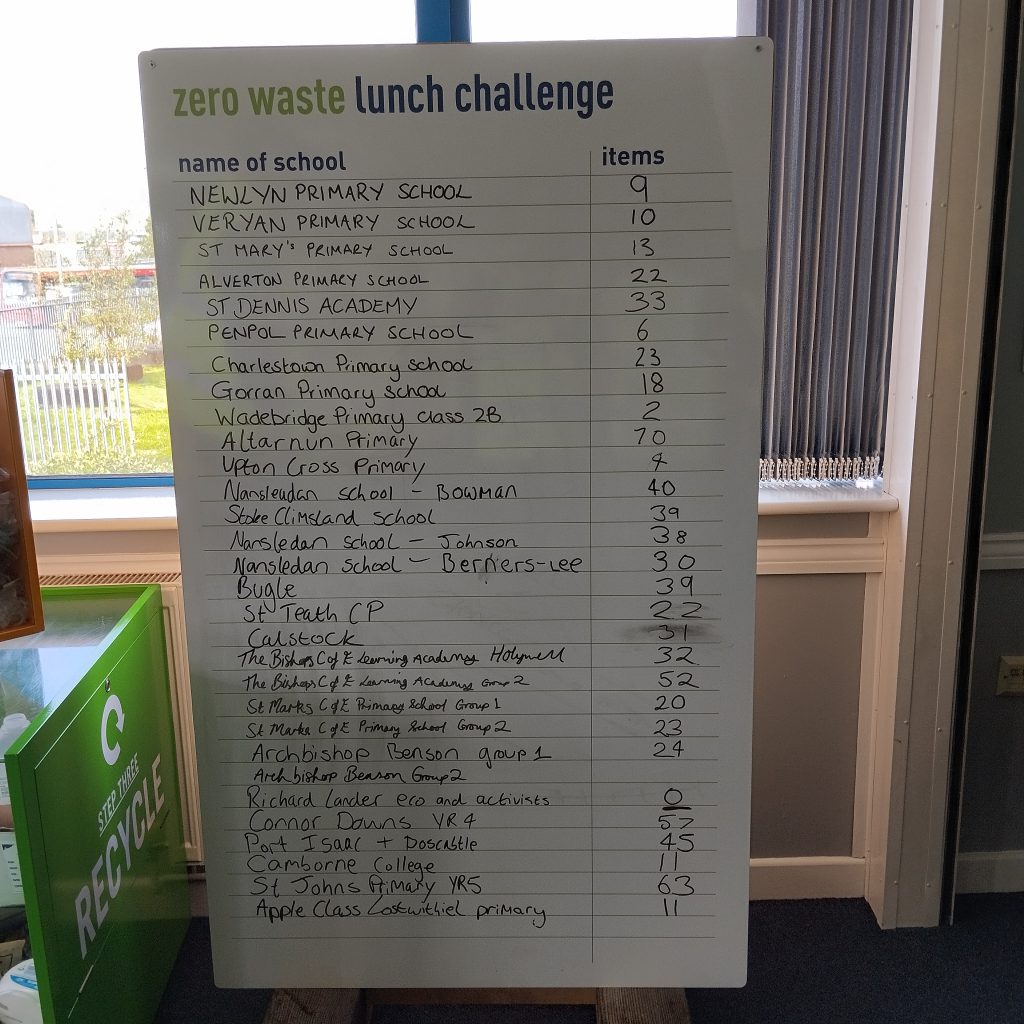
We were delighted to see how many schools have visited.
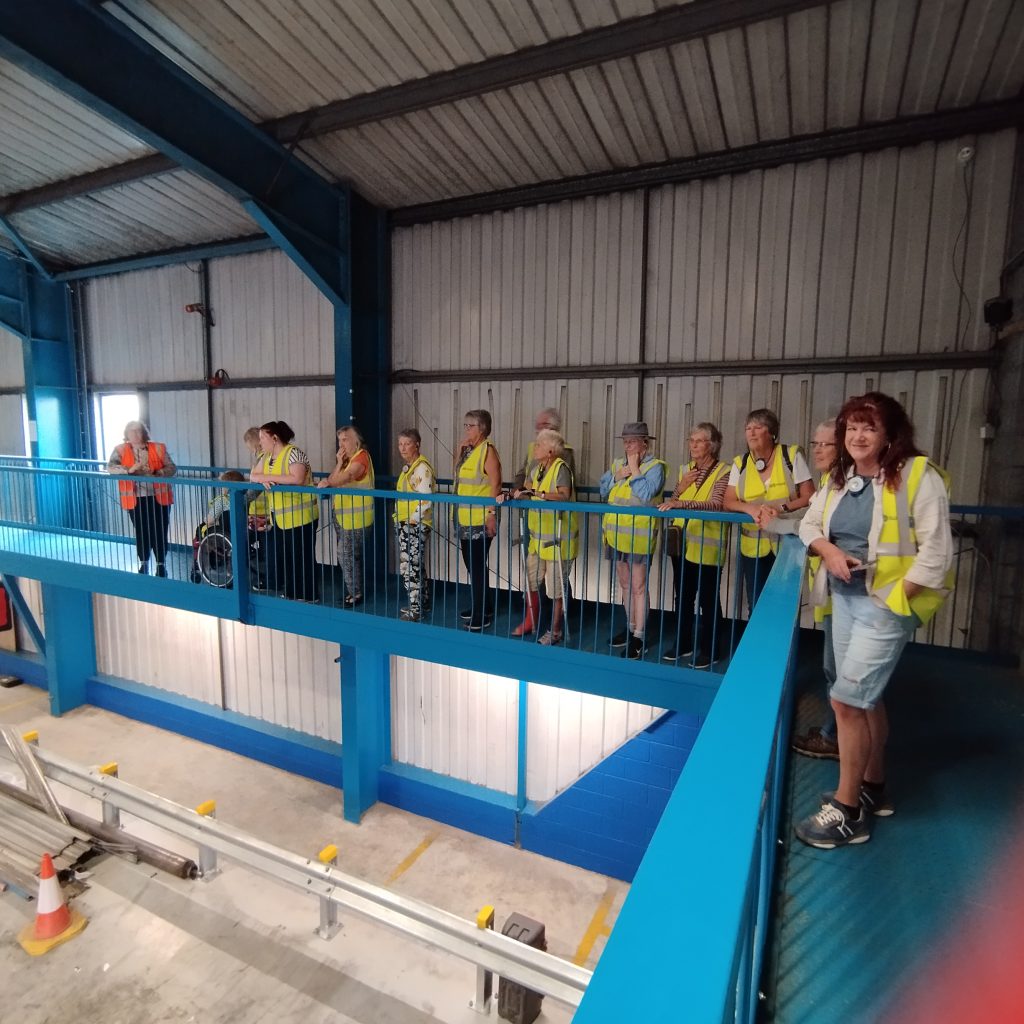
Recycling for Charity project volunteers
visited on July 16th 2024 and toured the facility.
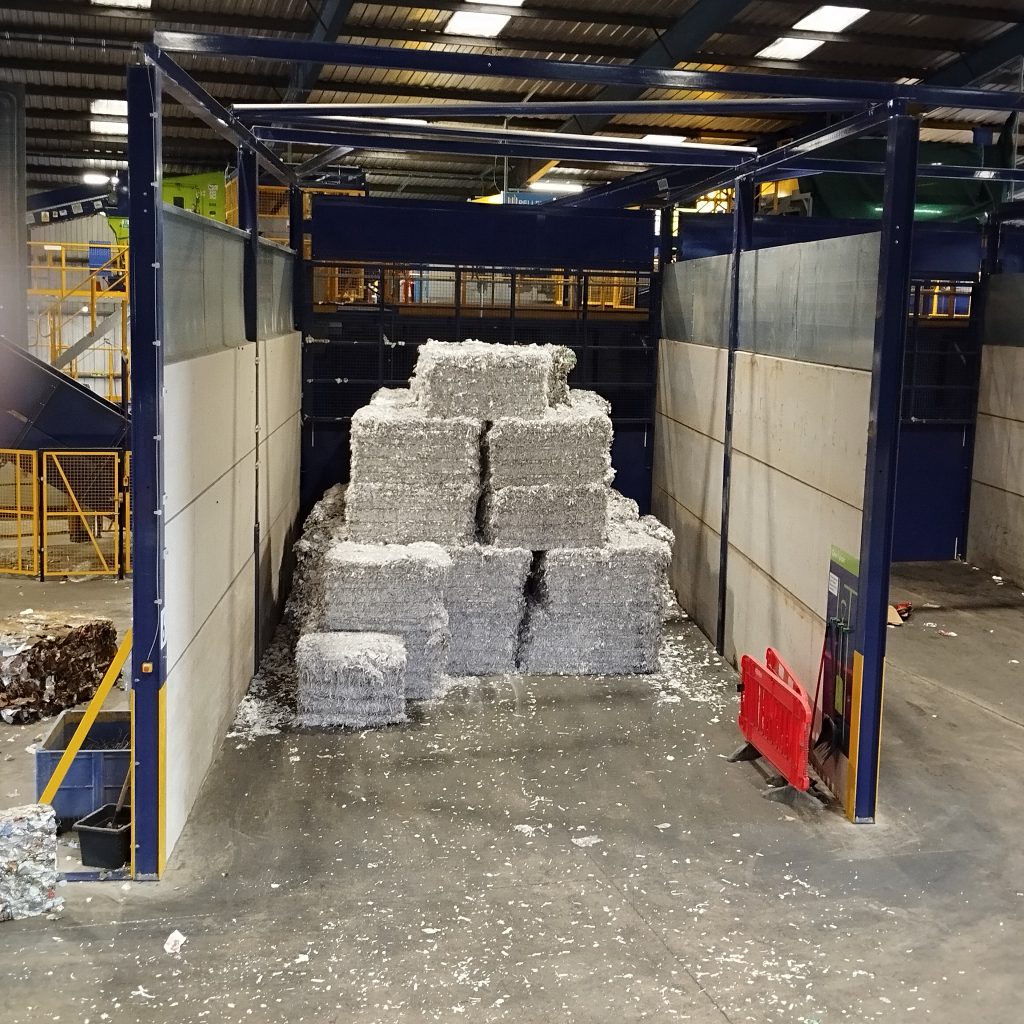
Paper baled
After our recycling has been collected by Cornwall council kerbside service, it’s taken to Bodmin Materials Recovery Centre before sending on to the next stage in it’s journey to be recycled. 53 lorries a day drop off recycling here. Cornwall council tell me… Since the new system has started We have collected over 3,000 tonnes of food waste so far and kerbside recycling in South East Cornwall has gone from 36% to 58%.
Paper – goes to recycling companies in Somerset and Kent where it is reprocessed into 100% recycled paper for newsprint and packaging.
Cardboard – is also taken to Somerset and Kent where it is sorted and reprocessed into new cardboard.
DS Smiths (who have a site in Launceston) claim they can turn a cardboard box that has been put out for kerbside collection back into a cardboard box in 14 days.
Steel cans –go to Swansea to be made into many different products including cars, bridges and cans.
Aluminium cans and foil – all these go to companies in Swindon and Swansea where they are melted and turned into ingots to be used to make everything from foil trays to aeroplanes.
Plastic bottles, pots, tubs and trays – a number of different companies take these in Wiltshire, Warwickshire, Kent, Essex and Buckinghamshire where they are sorted, shredded, melted and reused to make things including garden furniture, refuse bags and drainage pipes.
Glass bottles and jars – are first taken to Falmouth port before being shipped to Scunthorpe or Tilbury. A laser sorts by colour and can then be made back into glass bottles and jars.
Clothes & textiles – The Salvation Army collects and sends to JMP Wilcox the largest, textile reclaimers and processors in the UK. Post-consumer clothing is brought to the four-acre site at Bilston, near M6 West Midlands to a purpose-built, fully-computerised sorting and processing unit. Over 99% of the material is reused or recycled and more than 90% is exported around the world. The greatest demand is in Africa, Asia & Eastern Europe. Clothing demand more than doubled between 2000 and 2018, driven by the increased middle class, shorter fashion cycles and garment life. Many of the items not fit for purpose as reusable clothing become industrial wiping products, flock rags or mixed felt material and stay in the UK. Putting items in Salvation Army clothes banks goes on the same journey.
Any decent wearable clothes, shoes, belts should be dropped to charity shops or Fire Fighters yellow skips at fire stations. IMO.
Garden waste – this stays local going to Roche, to compost for agricultural and horticultural use. Sometimes during the year this is given away if you can bag and collect.
Food waste – goes to a transfer station at Liskeard to be loaded into lorries to take to Holsworthy to the Anaerobic Digestor which produces energy as well as biogas and digestates ie soil improver and used as a high quality agricultural fertiliser.